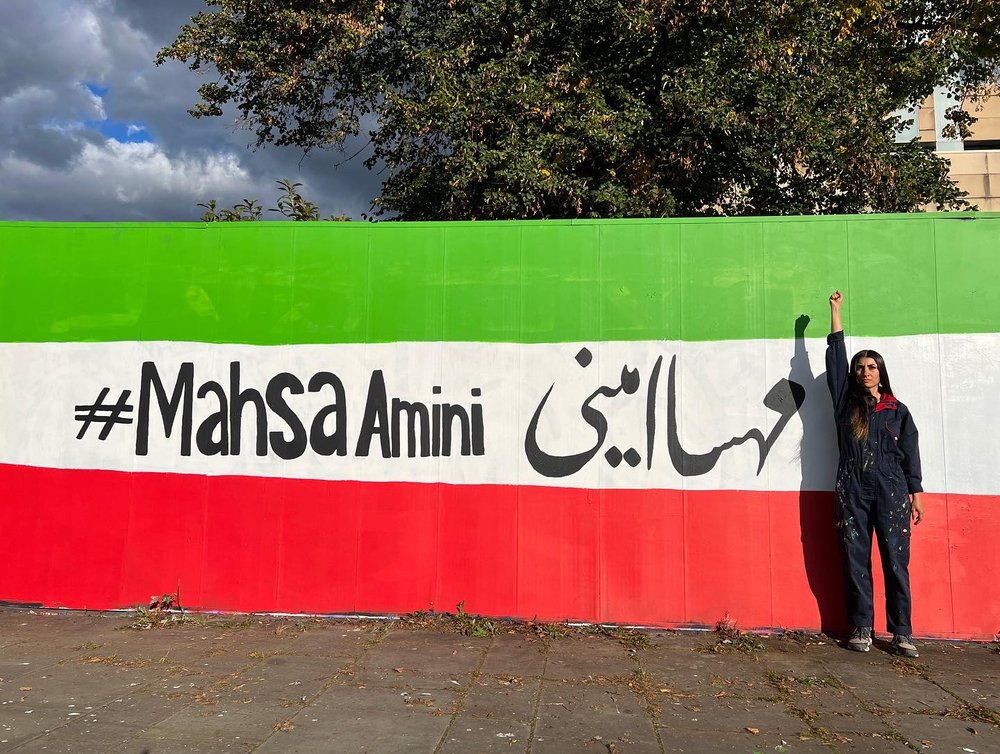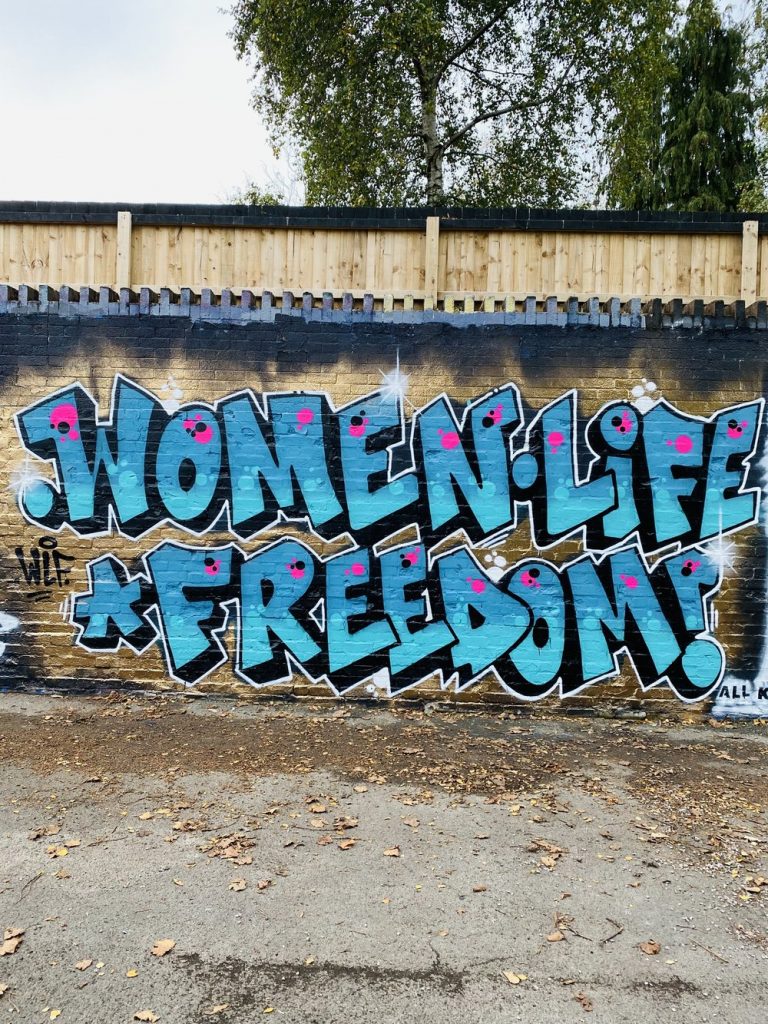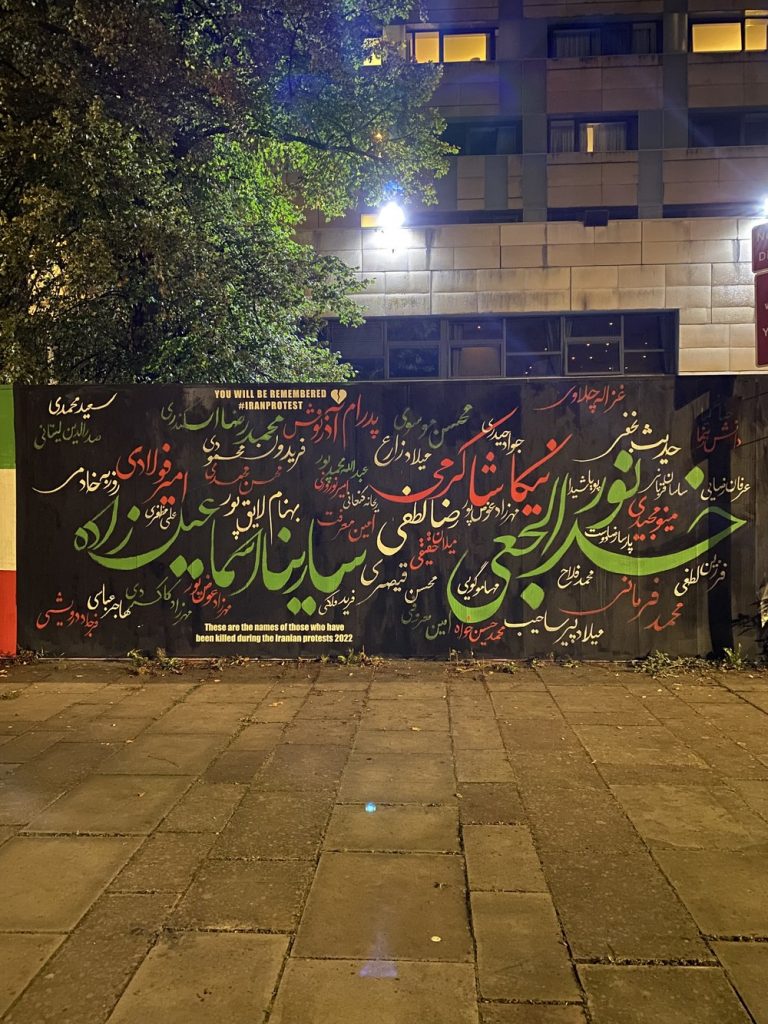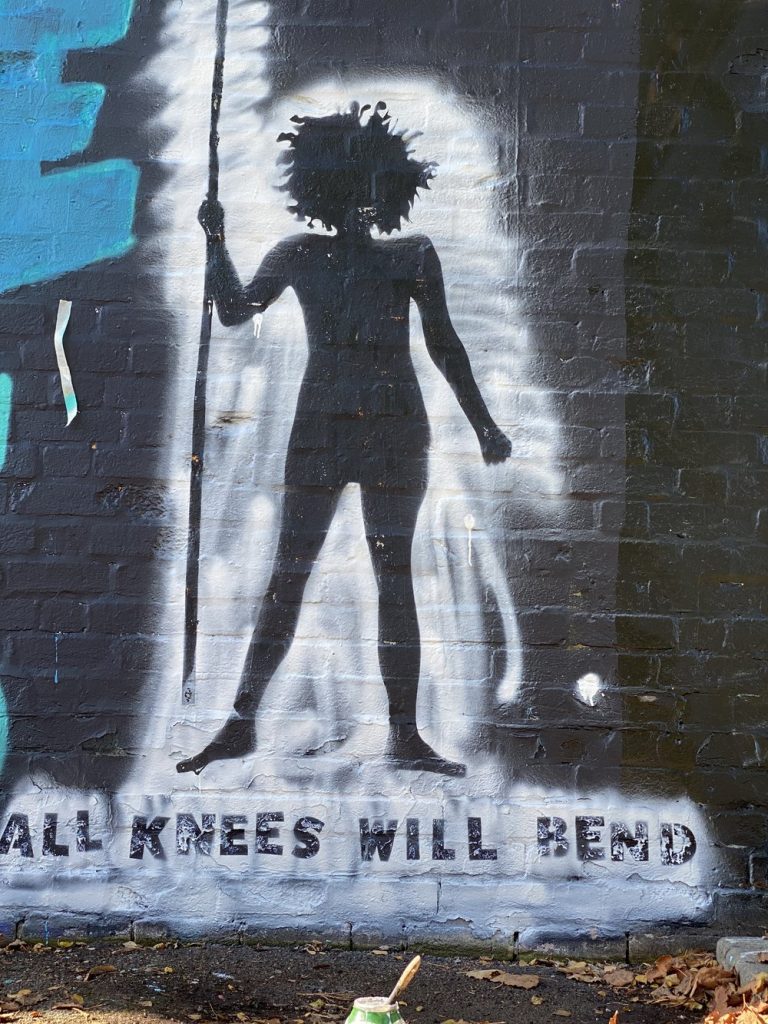Iranian street artist Sahar Saki explains how she has used her creativity to kickstart the Women Life Freedom movement in Cardiff

Sahar Saki, 36, has been campaigning fearlessly for women’s freedom by spray-painting murals across the city’s streets. Cardiff’s loudest advocate for the Women Life Freedom (WLF) movement, and has been running a street art festival to raise awareness of the feminist revolution happening in Iran. On the 25 November, she joined a protest at the Senedd to raise awareness of the abuses of women’s rights and the treatment of Iranian protesters. She continuously fights for the movement through her social media.
In the cosy setting of a Syrian restaurant, Iranian-born Sahar presents none of the justice-seeking ferocity that you see online. She has a soft-spoken voice, a shyness in her dark eyes. She confesses that being a spokesperson does not come naturally to her. “I don’t see myself as an activist,” she says. “I’m just an artist, expressing myself, expressing things I care about.”
Listen to the story here
Forbidden to dance
Sahar’s Iranian heritage is something deeply important to her. Having grown up a part of the Lori tribe in a small, northern city, she draws fondly from its culture in her art; the bright, sapphic blues, the Persian calligraphy. However, Iran’s harsh restrictions against the rights of women have made living there untenable.
“You don’t have the right to choose what you want to wear,” she explains. “You can’t dance on the street or in public. You can’t sing legally. You don’t have the right to divorce. If you want to travel abroad, you have to get permission from your husband or your father. It’s a very patriarchal community. It’s all based on men and what they want.”
It is the country’s misogynistic laws that led to the death of 22-year-old Mahsa Amini, an Iranian woman who was caught by Iran’s morality police for allegedly not wearing a headscarf properly. She was taken into custody where eye witnesses say she was brutally beaten. She subsequently passed away from her injuries. The grief and outrage of the people erupted into a series of protests that are still occurring today, known as Women Life Freedom – a movement born to fight for the rights of women and girls who have been oppressed under the regime.
Friends in unlikely places
It was in the pursuit of freedom that Sahar first came to Cardiff eight years ago. In an unfamiliar culture and having no English, she initially began work as a jewellery designer. It wasn’t until she started making street art that her career began to take off. “I didn’t do it on purpose,” she says. Looking back, it was a way for her art to be seen.
It was also where she found a community. She laughs as she reminisces how the “rough” swagger of the other street artists used to intimidate her. “I used to be so shy, so introverted,” she says. “I never would have one-in-a-million felt I would be friends with these people.”

Fighting back
Sahar’s experience with the graffiti community has not been smooth-sailing, however. Since the beginning of her WLF campaign in September, she has had several of her murals repeatedly vandalised. She continued to paint over them until she decided to create more murals elsewhere.
“I never considered myself as a fighting person,” she says, despite these attacks having forced her to become one. “If there is toxic energy, I like to channel my energy to another direction.”
How can you love your kid and not love a kid in Afghanistan, or Iran, or Syria?
Sahar admits that she does not sympathise with those who claim they are too busy to support the movement. As she speaks, an intensity comes over her expression. She pauses with her fork mid-air. “If you want to categorise people, it’s just very simple,” she says, leaning forward. “People who love and people who don’t. How can you love your kid and not love a kid in Afghanistan, or Iran, or Syria?
“You don’t have to be an artist,” she insists, to find a way to make a difference. “You can be creative if you love.”
Sahar admits that the constant campaigning is tiring. She says that next year she hopes to focus on her craft, “just a little bit.” She smiles as she says that one of her favourite activities to unwind now is to dance.
Do you want a mural?
In Cardiff, some walls are legal to paint on, while some aren’t. This means that there is tough competition between street artists for premium space. If you own a building in the city and want one of Sahar’s powerful pieces on one of your walls, find her on Instagram @sahar.saki.art



